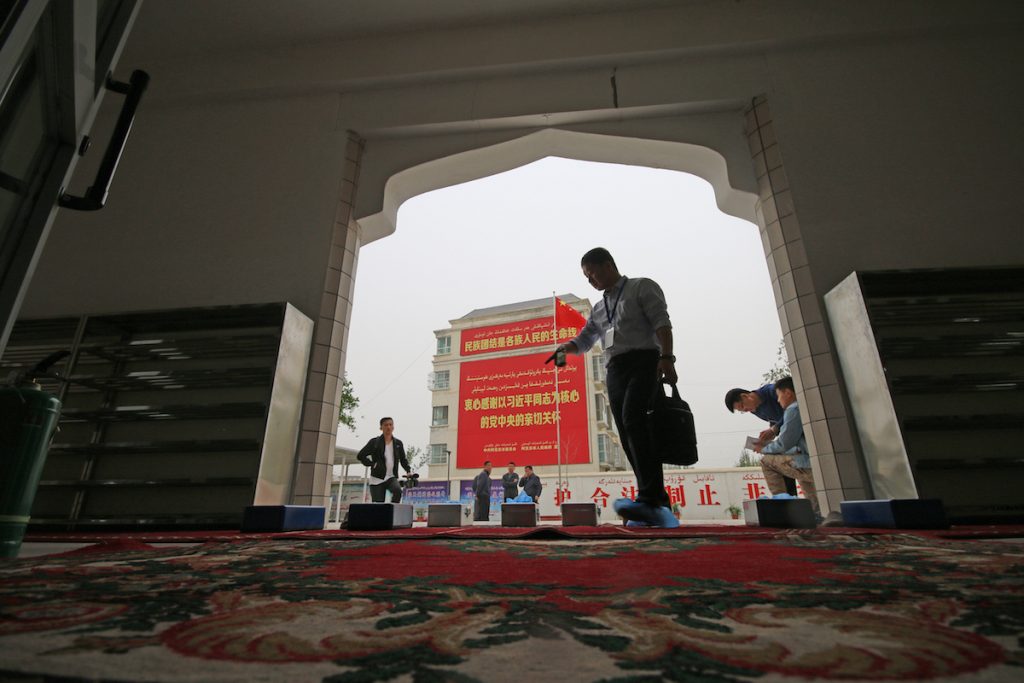The Chinese government continues to prosecute with long prison sentences Uyghurs and other Muslims in the country’s Xinjiang region, a new Human Rights Watch (HRW) report has revealed.
The report released this week noted that many people have been convicted and imprisoned without committing a genuine offense.
These formal prosecutions are distinct from those arbitrarily detained in unlawful “political education” facilities, said the report.
“Although the Chinese government’s use of ‘political education’ camps has led to international outrage, the detention and imprisonment of Xinjiang’s Muslims by the formal justice system has attracted far less attention,” said Maya Wang, senior China researcher of HRW.
“Despite the veneer of legality, many of those in Xinjiang’s prisons are ordinary people who were convicted for going about their lives and practicing their religion,” she added.
The New York-based human rights organization said that since 2016, when the Chinese government escalated its “Strike Hard Campaign against Violent Terrorism,” the Xinjiang’s formal criminal justice system has convicted and sentenced more than 250,000 people.
According to a 2019 report by the Network of Chinese Human Rights Defenders, even the Chinese government’s official statistics showed a dramatic increase in the number of people sentenced in 2017, followed by another increase in 2018.
The government’s own statistics showed that Xinjiang courts sentenced 99,326 people in 2017 and 133,198 in 2018.
The Xinjiang Victims Database — a nongovernmental organization that has documented the cases of over 8,000 detainees based on family accounts and official documents — estimates that the number of people sentenced in 2019 may be comparable to those in the previous two years.
Of the 178 cases whose year of sentencing is known, the number of people sentenced in 2019 is roughly the average of those of 2017 and 2018.
HRW said a comparable official sentencing figure could mean that tens of thousands more people were sentenced in Xinjiang in 2019.

The report cited that case of Jin Huaide, a Hui Muslim sentenced to life imprisonment for “splittism” in Changji Prefecture in September 2018.
In a verdict obtained by HRW, the Changji Intermediate People’s Court convicted Jin, 47, for “repeatedly and illegally” organizing trips abroad to study the Koran, inviting religious figures from countries including Bangladesh and Kyrgyzstan to Xinjiang, and holding religious meetings in the region between 2006 and 2014.
Chinese authorities accused Jin of encouraging others to take part in Tablighi Jamaat, a kind of transnational movement of Islamic proselytization.
HRW said there is no publicly available evidence that Jin’s activities constituted a recognizable criminal offense, yet the court determined that his activities had “promoted the infiltration of foreign religious forces in China.”
Jin was sentenced to seven years for “gathering crowds to disturb social order” in 2015 for these same behaviors, but the procuratorate challenged the verdict in 2017 and asked for a heavier sentence, resulting in a retrial that resulted in a life sentence.
Prior to this sentence, in 2009, Jin had been imprisoned for 18 months for teaching the Koran to over two dozen Hui and Uyghur children.
HRW noted that people are being sentenced with perfunctory and closed trials that families cannot attend.
It added, however, that international pressure might have contributed to the Chinese government releasing some detainees from “political education” camps.
The government, which has denied mass arbitrary detentions in Xinjiang, has asserted that it governs the region according to the “rule of law.”
But HRW said many people have been forcibly disappeared, detained or imprisoned with their families not informed of their whereabouts. Those released are subjected to continued surveillance, control of their movements, and some to forced labor.






